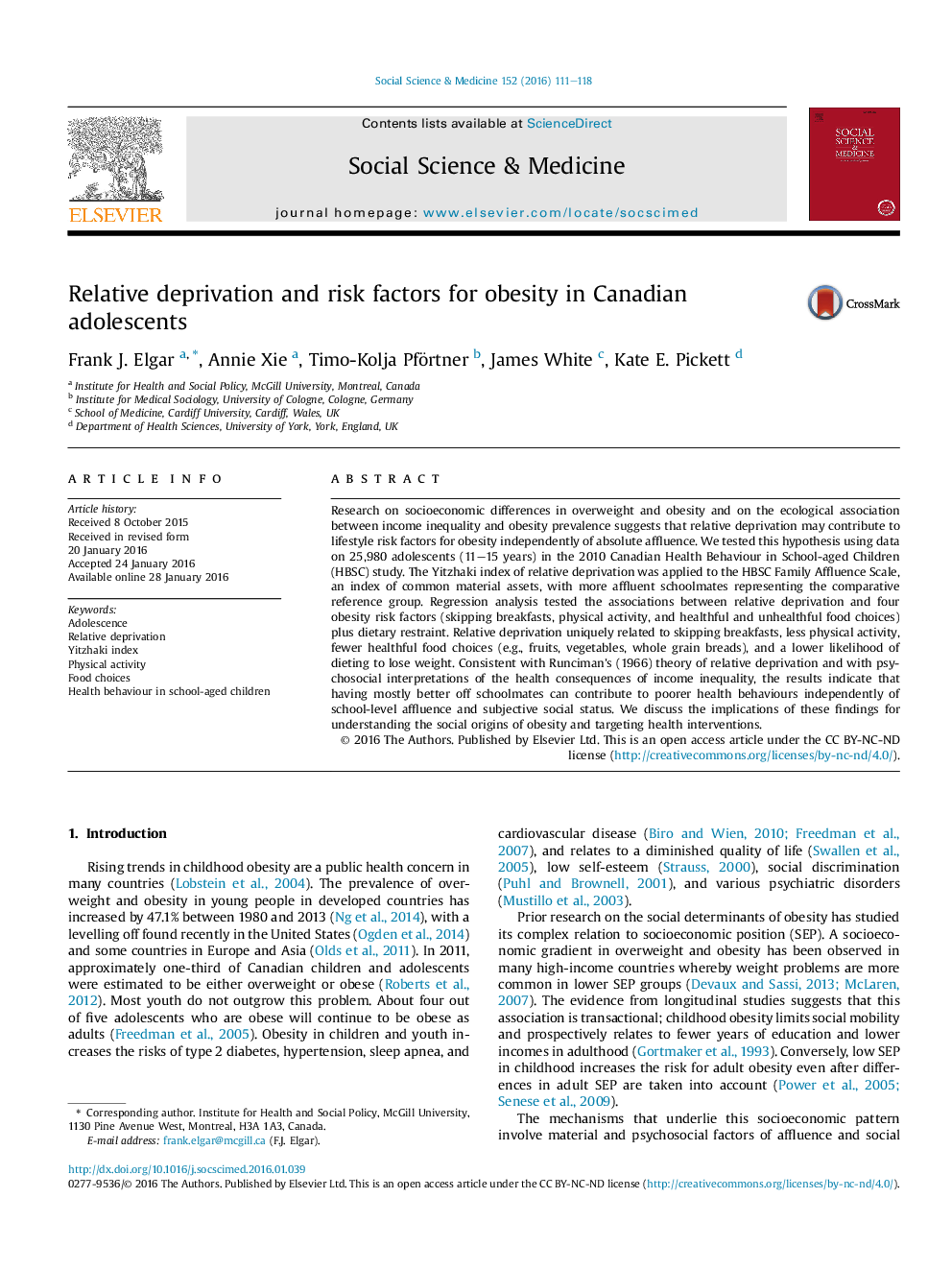| کد مقاله | کد نشریه | سال انتشار | مقاله انگلیسی | نسخه تمام متن |
|---|---|---|---|---|
| 7330587 | 1476017 | 2016 | 8 صفحه PDF | دانلود رایگان |
عنوان انگلیسی مقاله ISI
Relative deprivation and risk factors for obesity in Canadian adolescents
ترجمه فارسی عنوان
محرومیت نسبی و عوامل خطر چاقی در نوجوانان کانادا
دانلود مقاله + سفارش ترجمه
دانلود مقاله ISI انگلیسی
رایگان برای ایرانیان
کلمات کلیدی
بلوغ، محرومیت نسبی، شاخص ییتژکی، فعالیت بدنی، انتخاب غذا، رفتارهای بهداشتی در کودکان مدرسه،
موضوعات مرتبط
علوم پزشکی و سلامت
پزشکی و دندانپزشکی
سیاست های بهداشت و سلامت عمومی
چکیده انگلیسی
Research on socioeconomic differences in overweight and obesity and on the ecological association between income inequality and obesity prevalence suggests that relative deprivation may contribute to lifestyle risk factors for obesity independently of absolute affluence. We tested this hypothesis using data on 25,980 adolescents (11-15 years) in the 2010 Canadian Health Behaviour in School-aged Children (HBSC) study. The Yitzhaki index of relative deprivation was applied to the HBSC Family Affluence Scale, an index of common material assets, with more affluent schoolmates representing the comparative reference group. Regression analysis tested the associations between relative deprivation and four obesity risk factors (skipping breakfasts, physical activity, and healthful and unhealthful food choices) plus dietary restraint. Relative deprivation uniquely related to skipping breakfasts, less physical activity, fewer healthful food choices (e.g., fruits, vegetables, whole grain breads), and a lower likelihood of dieting to lose weight. Consistent with Runciman's (1966) theory of relative deprivation and with psychosocial interpretations of the health consequences of income inequality, the results indicate that having mostly better off schoolmates can contribute to poorer health behaviours independently of school-level affluence and subjective social status. We discuss the implications of these findings for understanding the social origins of obesity and targeting health interventions.
ناشر
Database: Elsevier - ScienceDirect (ساینس دایرکت)
Journal: Social Science & Medicine - Volume 152, March 2016, Pages 111-118
Journal: Social Science & Medicine - Volume 152, March 2016, Pages 111-118
نویسندگان
Frank J. Elgar, Annie Xie, Timo-Kolja Pförtner, James White, Kate E. Pickett,
